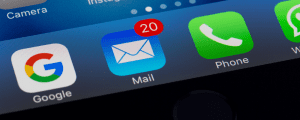9 Steps to Prepare Yourself and Your Team Before Taking Annual Leave
Now that some travel restrictions have been lifted, thousands of Brits and Europeans are taking the opportunity to get away and enjoy a holiday. It’s the first time that many people will have had the opportunity to travel and get away from working from home.
However, now that remote working has been proven successful, it may be hard to plan to mentally switch off, but it’s vital that you do. This year has been one of the most difficult to deal with for millions of people around the world, so it’s important that you recharge and enjoy a holiday.
To help you get ready for your break, here are some tips for preparing yourself and your team for the big OOO.
1. Decide if you’re switching off completely
A key mental decision, which will inform the rest of the steps for getting ready to jet off, is to decide whether you’re going to work a little or completely switch off to emails, Slack messages, Telegram pings, Whatsapp calls and social media meltdowns.

The mental health benefits of completely checking out of work are well-documented, but in today’s age of an ‘always-on’ approach, it can be difficult to put the phone away.
If you have decided to completely switch off, great. We’ll provide more advice on preparing for a black-out a little further on.
However, if you’re expecting to carry out tasks while you’re away, try to set ground rules for yourself to avoid being constantly available.
For example, make it clear to your coworkers that you’ll only be available via email and will only respond to messages during the morning or evening hours. You could likewise say that you’ll use Slack to check-in but phone calls and emails are off-limits.
2. Start planning for your time off as early as possible
This might seem like a no-brainer, but preparing well in advance of leaving the office is the best policy to have.
It’s easy to focus on how important it is to plan your own schedule ahead of a holiday, but it’s also vital that your co-workers are fully prepared. It’s their wellbeing that you need to consider as well as their workload is likely to increase. But if they’re informed and prepared, you won’t be coming back to angry messages.
3. Make sure your team has access to the tools they need
Depending on your job role, there are different tools that you’ll use on a daily basis. But if you’re the only one in the business to use them, there may be an issue if your co-workers can’t gain access while you’re away.

Providing access and giving a little guidance on how each tool works will be hugely beneficial for your team. It’s also worth making sure all of your passwords are correctly stored and remain valid.
4. Automate and queue up as much as you can beforehand
This tip is especially important for those working in social media but also applies to email or ad campaign managers as well.
For peace of mind, you should try to pre-schedule your campaigns while you’re preparing for time away from the office. Prepping messages in advance means you already have the final say on creatives and copy: all you need to do is pick a date and time for your campaigns to fire off.
If you’re a social media manager, you can use scheduling tools to queue up your posts based on your company’s calendar.
5. Put together a brief out of office autoresponder
Putting together an out of office autoresponder will help manage people’s expectations while also letting them know exactly when you’ll be available again (or how else to get in touch).
If your inbox is off-limits during vacation, you should make it clear. The good news is that you can easily set up an out of office autoresponder in Gmail in a matter of minutes.
Keep in mind that out of office replies don’t need to be particularly lengthy or detailed, simply state the level of your availability during the dates in question.
Although you can definitely add some personality to your out of office messages, a blunt tone is perhaps best for getting the point across that you aren’t available….
6. Encourage your team to track their progress with project management tools
Letting go of work can, in itself, be a difficult task if you’re a diligent and hard worker.
That’s why you should encourage your team to use project management tools to track any tasks you have left.

Monday is one of the market-leading project management tools, but Trello is a free platform that does just as good of a job.
You can set up email alerts to ping messages to your co-workers while you’re away, ensuring tasks don’t go uncompleted.
You can also assign roles, so that if anything goes wrong people will be accountable and you don’t get in trouble if something has been missed.
This will also help you get back up to speed when you return from holiday, as you’ll be able to see what has been done while you’ve been away.
7. Try not to overwork before leaving
Don’t put too much pressure on yourself to have everything “perfect” in terms of your holiday planning.
After all, emergencies happen and so do last-minute holidays. If you find yourself suddenly out of the office and unable to stick to your schedule, accept it for what the situation is.
And similarly, don’t force yourself to achieve “inbox zero” as soon as you get back. Simply following the tips above means that your workload should be more manageable upon your return.
8. Make sure you leave your home and workspace clear
Perhaps the last thing you do while preparing for a holiday is to make your home as clean and tidy for when you return.
If you’re in the office, clearing as much of your desk as possible is also vital, as other members of the team may need to use the space in order to stay socially distanced, as many offices now have policies demanding people work at least 2m apart.
If nothing else, cleaning is a way to step away from the phone or your inbox as you’re prepping to take time off.
9. A lesson from Budda
To conclude, we’ll leave you with this teaching from Shantideva, an 8th-century Indian Buddhist monk and scholar at Nalanda, which should help your mental state throughout your preparations and time away.
“If it can be fixed; why worry?
If it can’t be fixed, what’s the point of worrying?”
Enjoy your trip.